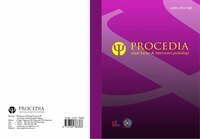Psikoedukasi rawat diri penyandang disabilitas pada pengurus forum keluarga disabilitas
DOI:
https://doi.org/10.22219/procedia.v10i2.19375Keywords:
Psikoedukasi, komunitas, keluarga, anak disabilitas, rawat diri, kemandirianAbstract
Self-care is a basic thing that must be owned by every individual, but not every individual able to carry out self-care activities, especially for children with disabilities. Many families with disabilities experience difficulties due to the lack of information and the lack of soft skills related to disability self-care problems, thus hampering their function in managing and carrying out roles in the community. Psychoeducation is carried out with the aim of increasing the knowledge and skills of disability family forum (FKD) administrators regarding self-care for persons with disabilities. Psychoeducation was carried out in two stages with seven intervention sessions attended by 20 FKD members. The assessment used includes interviews, observations, pre-test and post-test sheets using multiple choice consisting of 10 questions. The results of providing psychoeducation showed a change in knowledge and an increase in skills in FKD management.The results of the post-test showed an increase in the knowledge of the administrators. A series of psychoeducational activities such as providing material, role play and discussions helped improve skills related to self-care for FKD administrators.
Downloads
References
Amelia, D. R. (2017). Psikoedukasi untuk meningkatkan pemahaman tentang pengasuhan anak pada komunitas ibu anggota posyandu. Procedia - Social and Behavioral Sciences, 5(1), 12–17.
Bender, A., & Ingram, R. (2018). Connecting attachment style to resilience: Contributions of self-care and self-efficacy. Personality and Individual Differences, 130, 18–20. https://doi.org/10.1016/j.paid.2018.03.038
Bronfenbrenner, U. (1979). The Ecology of Human Development. Harvard University Press.
Bronfenbrenner, U. (1986). Recent Advances in Research on the Ecology of Human Development. Development as Action in Context, 287–309. https://doi.org/10.1007/978-3-662-02475-115
Brown, R. L., Moloney, M. E., & Ciciurkaite, G. (2017). People with physical disabilities, work, and well-being: The importance of autonomous and creative work.Research in Social Science and Disability, 10, 205–224. https://doi.org/10.1108/S1479-354720170000010009
Chan, S. H. W., Lee, S. W. K., & Chan, I. W. M. (2007). TRIP: A psycho-educational programme in Hong Kong for people with schizophrenia. Occupational Therapy International, 14(2), 86–98. https://doi.org/10.1002/oti.226
Davidson, S. (2010). Psychosocial support within a global movement. Psychologist, 23(4), 304–307.
Desriyani, Y., Nurhidayah, I., & Adistie, F. (2019). Burden of Parents in Children with Disability at Sekolah Luar Biasa Negeri Cileunyi. NurseLine Journal, 4(1), 21–30.
https://doi.org/10.19184/nlj.v4i1.8696
Friedman, M. M., & Bowden, V. R. (2010). Buku Ajar Keperawatan Keluarga. EGC.
Head, L. S., & Abbeduto, L. (2007). Recognizing the role of parents in developmental outcomes: A systems approach to evaluating the child with developmental disabilities. Mental Retardation and Developmental Disabilities Research Reviews, 13(4), 293–301. https://doi.org/10.1002/mrdd
Himpunan Psikologi Indonesia. (2010). Kode etik psikologi Indonesia. Himpunan Psikologi Indonesia. https://himpsi.or.id/organisasi/kode-etik-psikologi-indonesia
Kloos, B., Hill, J., Thomas, E., Wandersman, A., Elias, M. J., & Dalton, J. H. (2012). Community Psychology: Linking Individuals and Communities (Third Edit). Wadsworth, Cengage Learning. https://doi.org/10.4324/9781315178028-16
Lucas-Carrasco, R., Eser, E., Hao, Y., McPherson, K. M., Green, A., & Kullmann, L. (2011). The Quality of Care and Support (QOCS) for people with disability scale: Development and psychometric properties. Research in Developmental Disabilities, 32, 1212–1225. https://doi.org/10.1016/j.ridd.2010.12.030
Moore, S. E., Bledsoe, L. K., Perry, A. R., & Robinson, M. A. (2011). Social Work Students and Self-care: A Model Assignment for Teaching. Journal of Social Work Education, 47(3), 545–553. https://doi.org/10.5175/JSWE.2011.201000004
Nelson, G., Kloos, B., & Ornelas, J. (2014). Community Psychology and Community Mental Health: Towards Transformative Change (1 Edition). Oxford University Press.
Sendy, C. T. (2020). Pengaruh Terapi Psikoedukasi Keluarga terhadap Kemandirian dalam Pemenuhan Kebutuhan Sehari-hari Anak Retardasi Mental Di SDLB Kecamatan Lamongan Kabupaten Lamongan. Universitas Muhammadiyah Lamongan. Jurnal Ilmu Keperawatan, Volume 4, No. 2 November 2016. https://adoc.pub/pengaruh-terapi-psikoedukasi-keluarga-terhadap-harga-diri-re.html
Supratiknya, A. (2011). Meancang Program dan Modul: Psikoedukasi (Edisi Revi). Universitas Sanata Dharma. https://repository.usd.ac.id/12880/1/2011 Merancang Program dan Modul Psikoedukasi Edisi Revisi.pdf
WHO. (2011). World Report On Disability. In World Health Organization. https://doi.org/10.2196/14170
Wiyati, R., Wahyuningsih, D., & Widayanti, E. D. (2010). Pengaruh Psikoedukasi Keluarga Terhadap Kemampuan Keluarga Dalam Merawat Klien Isolasi Sosial. Jurnal Keperawatan Soedirman. The Soedirman Journal of Nursing), 5(2), 85–94.
Zarchi, M. S., Fatemi Bushehri, S. M. M., & Dehghanizadeh, M. (2018). SCADI: A standard dataset for self-care problems classification of children with physical and motor disability. International Journal of Medical Informatics, 114, 81–87. https://doi.org/10.1016/j.ijmedinf.2018.03.003
Downloads
Published
How to Cite
Issue
Section
License
Copyright (c) 2022 Mohamad Ridhoddin Akbar

This work is licensed under a Creative Commons Attribution-NonCommercial 4.0 International License.






